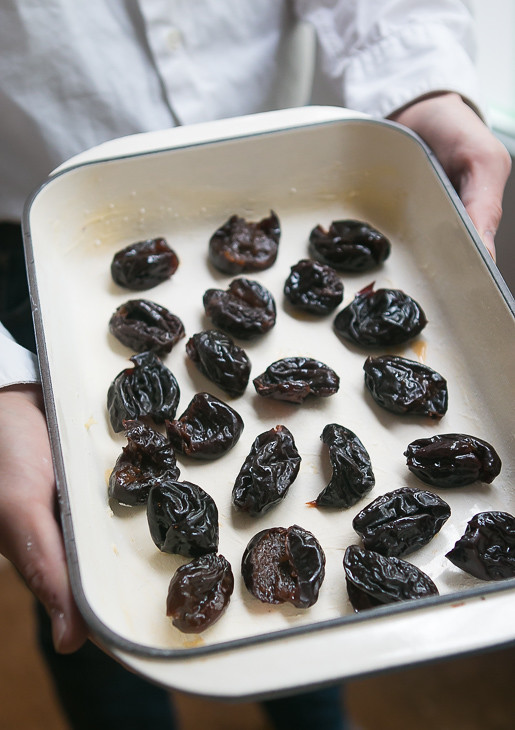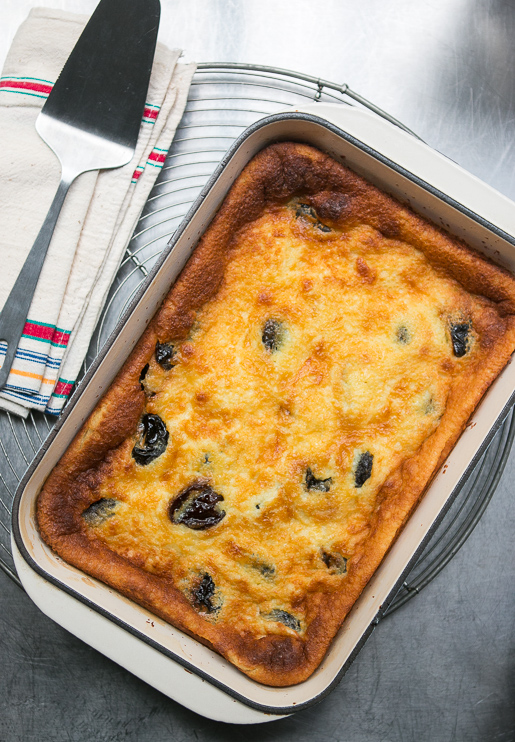Posted: 26 Nov 2014- David Lebovitz
The other day, while minding my
business, taking a casual stroll about town, I suddenly realized that I’d
written “Bonne anniversaire,” or “Happy Birthday,” in French, here on the site.
It’s an honest mistake because the happy (or bon,
er, I mean, bonne)
expression is pronounced bonneanniversaire,
rather than bon
(with a hard “n”) anniversaire, because, as the
French would say, it’s “plus
jolie,” or simply, “more beautiful.”
(And I’m pretty sure I got that jolie right. Since it refers
to l’expression,
which is feminine, it’s jolie,
rather than, joli.
Although both are pronounced exactly the same. And people think I spend all day
making up recipes…)
 I raced back home as fast as my feet
could take me, shoving pedestrians aside and knocking over a few old ladies in
my path, to correct it to “Bon
anniversaire.” Then afterward, after I caught my breath, I did a
search on some French grammar sites on the Internet and landed on one forum
with four intricate pages of heated discussions on whether it was actually
masculine (bon) or
feminine (bonne).
Everyone (well, being France, most people…) agreed that it was masculine –
although curiously, it’s pronounced as bonne,
the feminine, when wishing someone, or anyone, a “Happy Birthday.”
I raced back home as fast as my feet
could take me, shoving pedestrians aside and knocking over a few old ladies in
my path, to correct it to “Bon
anniversaire.” Then afterward, after I caught my breath, I did a
search on some French grammar sites on the Internet and landed on one forum
with four intricate pages of heated discussions on whether it was actually
masculine (bon) or
feminine (bonne).
Everyone (well, being France, most people…) agreed that it was masculine –
although curiously, it’s pronounced as bonne,
the feminine, when wishing someone, or anyone, a “Happy Birthday.”
Just like you would never write, or
say, ma amie
(feminine) – even if “my” friend was a girl or woman, because it would sound
like ma’amie, which
reads like Finnish, and if spoken (go ahead, try it) sounds like bleating
sheep. So it’s always mon ami,
and mon amie, a
gender-bending (and for us learning the language, a mind-boggling) minefield of
a mix of masculine and feminine pronouns.
Another thing that confuses people
is salade, which is
what lettuce is generally referred to in French, when talking about the genre
of lettuces. If it is a specific kind of lettuce – batavia, rougette, romaine, l’iceberg, etc, it’s often
referred to by type. Yet the word salade
is also used to refer to composed salads, like salade niçoise, salade de chèvre chaud, and salade parisienne. Hence
non-French speakers are often confused when they order a sandwich with salade and find a few dinky
leaves of lettuce on their plate, not the big mound of nicely dressed greens
that they were hoping for.
Whew! After those first three
paragraphs, I think you’ll understand why French is a tricky language to
master, and even the French are at odds with how to say and write what. No
wonder everybody smokes. #stress
In fact, I think I also need to step outside myself after writing all of that.


No comments:
Post a Comment